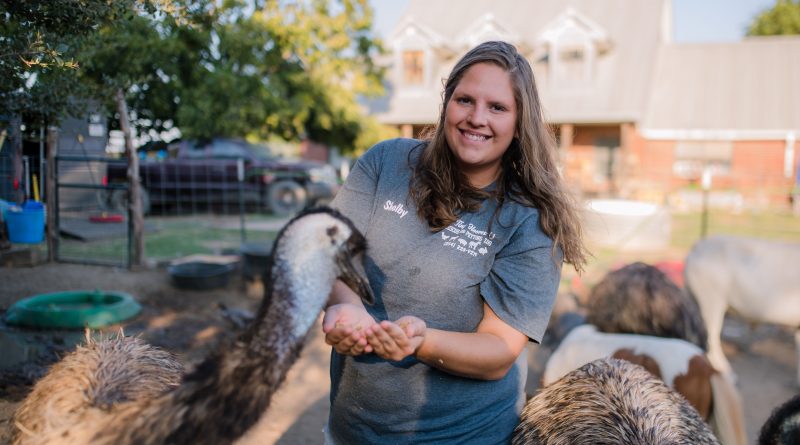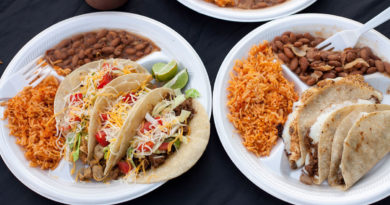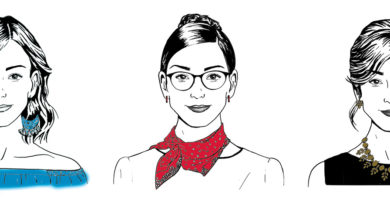‘Doctor Doolittle’ of Central Texas rescues creatures great and small
By FRED AFFLERBACH | Photography by JUSTIN BORJA
Shelby Michalewicz was up late last night. Sometime around midnight, a visitor brought three scrawny raccoons to join her animal rescue farm outside Temple. The raccoons were orphans found living at a Salado riding club. The trio will join a menagerie of outcasts, critters with an array of problems that have prevented them from living a normal life.
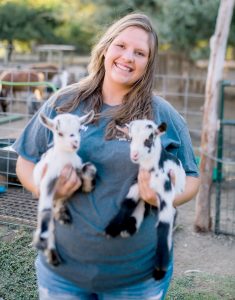
When it comes to nurturing a colorful cast of characters from the animal kingdom, Michalewicz can outdo both Elly May Clampett and Doctor Dolittle.
Here are a few animals that call Tiny Hooves home: Snap, Crackle and Pop — three opossums with a metabolic bone disease, a goose with a limp, a macaw with an attitude problem, five rabbits, a brood of chickens and roosters, three emus, a Shetland pony named Carmel, and Butterbean and Tootsie, two pygmy goats. You also will meet Remington. He’s Michalewicz’s 3-year-old son. On a hot August morning, he was outside bottle feeding and cradling a baby goat, Jeffrey, in his arms.
Michalewicz says her mission is to rehabilitate and release animals into their native habitat. Because that isn’t always possible, she is prepared to feed and love these misfits for their entire natural life. Except for the most extreme cases, euthanizing is not an option. Her animals are about 90 percent rescued from the wild and 10 percent discarded pets.
She is on constant watch, keeping predators such as hawks, owls and snakes at bay.
“If you’re a wildlife rehabber, your main goal is to raise and release them into the wild,” Michalewicz said. “Too many people do it for the wrong reason and just want to keep pets. That’s definitely not our goal. We want to have the wild animals back in the wild. That’s why with the opossums it’s unfortunate that somebody gave them their disorder. So now they can’t be released because they’re disabled.”
With the help of her husband, Steven Houston, and volunteers, Michalewicz has been operating Tiny Hooves for three-and-a-half years. She’s built cages, an aviary, corrals, and an animal playscape on a busy, two-acre tract. She lives in the adjacent, two-story house with her husband and son.
Michalewicz grew up an animal lover, bottle-feeding goats that her mother raised in Rogers. In high school, she dreamed of being a vet. But an automobile accident left her memory impaired. She attended a community college for a short while, but found she had trouble taking tests. She says she is mostly self-taught when it comes to animal care.
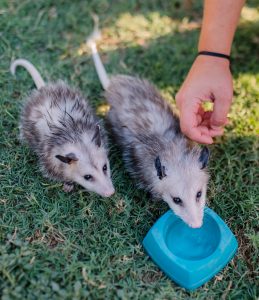
Today, Tiny Hooves has growing pains, but Michalewicz seems to take things in stride. She recently moved Snap, Crackle and Pop into a guest bedroom to free up outside space for the new kids on the block—the three raccoons.
Michalewicz operates Tiny Hooves as a nonprofit and takes no salary. She accepts donations from people dropping off or adopting animals, but doesn’t have fixed rates. Her husband, who works full time in the air-conditioning and heating business, sometimes subsidizes Tiny Hooves. And he logs numerous hours helping around the farm and pulling a livestock trailer. Tiny Hooves has two main income streams: a mobile petting zoo that attends birthday parties and other functions, and Michalewicz takes various critters to console and comfort seniors at the William R. Courtney Texas State Veterans Home in Temple.
Volunteer and animal lover Donna Aregood discovered Tiny Hooves one fall through a Facebook post asking for pumpkin donations. Pumpkins, apparently, are a delicacy for many animals. Aregood loaded up some pumpkins and drove down the two-lane, back road to the farm. Nowadays, she meets the Tiny Hooves mobile menagerie whenever she can. “I don’t have the time to do the rescuing myself, but it makes me feel good to help someone who really, truly needs the help.”
Aregood said the animals have a profound effect on the residents. “We take baby goats. And they’ll jump around and play and butt heads and the residents just laugh,” she said. “To hear the stories these (senior) men and women tell you, that’s why I volunteer.”
One particular trip to visit children with disabilities in Waco left an indelible impression on Aregood. Michalewicz brought a dorper sheep named Van Gogh that had been attacked by coyotes. It lost an ear. A youngster there also had only one ear. “That boy lit up. He went over and hugged that sheep,” Aregood said. “That was the most heartwarming thing that I have seen. A lot of times the interaction with these children brings tears to our eyes.”
Bri Wachsmann of Lorena adopted a rescue dog from Tiny Hooves about a year ago. A shelter in Cameron was about to euthanize a dog and her three puppies because no one had stepped up to take them home. Michalewicz heard about the problem and adopted the whole family. Looking at photographs on Facebook, Wachsmann fell in love with a white, bulldog-pointer mix named Max. She visited the farm and came away impressed with the harmony among such a diverse group of critters.
“They coincide with each other, animals that probably shouldn’t coincide with one another, and they’re all happy, like pigs and geese and horses and the ostrich. They’re all happy,” Wachsmann said. And about Michalewicz, a longtime friend of her niece, Wachsmann said, “She’s a particular soul. There’s not many like her out there that would go the extra mile for all those animals.”
Back at the Tiny Hooves farm in late August, the three raccoons continue to heal, eating a hearty diet of sardines, fruits and vegetables, ham and chicken. Michalewicz said they are doing all the things healthy raccoons do: eating, climbing, hissing and biting. Soon, they should be ready to survive on their own back in the wild.
www.facebook.com/tinyhoovespettingzoo

